Famous men and women of principle.
What does it mean to be a man of principle?
It means that a person feels the importance of sticking to certain values, beliefs and actions – regardless of outer consequences.
For example, if we believe it is wrong to discriminate on the grounds of religious faith, a man of principle will be willing to oppose this discrimination even if it costs his job.
Men and women of Principle
 Socrates (469 BC–399 BC) – Greek philosopher. During a time of war, Socrates was critical of his own Athenian government. Socrates said in matters of war and peace principles of justice should trump the view of the majority. For his criticisms and unorthodox views, Socrates was condemned to death – something he willingly undertook.
Socrates (469 BC–399 BC) – Greek philosopher. During a time of war, Socrates was critical of his own Athenian government. Socrates said in matters of war and peace principles of justice should trump the view of the majority. For his criticisms and unorthodox views, Socrates was condemned to death – something he willingly undertook.
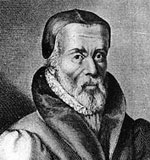 William Tyndale (1494 – 1536) – Tyndale believed that everyone should be able to read the Bible in their native tongue. At the time, that was strictly prohibited, but clandestinely, Tyndale translated and printed the Bible in English. Tyndale was burnt at the stake for his ‘heresy’, but soon after English Bibles became widely distributed.
William Tyndale (1494 – 1536) – Tyndale believed that everyone should be able to read the Bible in their native tongue. At the time, that was strictly prohibited, but clandestinely, Tyndale translated and printed the Bible in English. Tyndale was burnt at the stake for his ‘heresy’, but soon after English Bibles became widely distributed.
Thomas Paine (1737-1809)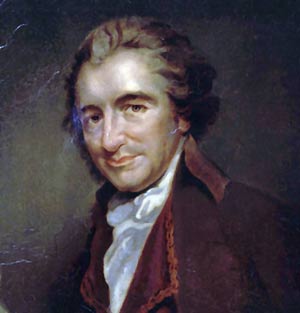
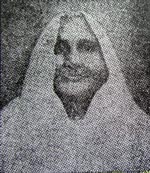
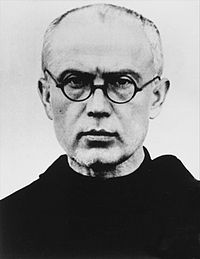
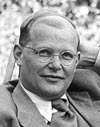 Dietrich Bonhoeffer (1906 – 1945) German Lutheran Pastor who was consistently outspoken in his criticism of Nazism in Germany. Preferring to stay in the country of his birth, he was eventually arrested and executed in Flossian concentration camp.
Dietrich Bonhoeffer (1906 – 1945) German Lutheran Pastor who was consistently outspoken in his criticism of Nazism in Germany. Preferring to stay in the country of his birth, he was eventually arrested and executed in Flossian concentration camp.
 Rosa Parks (1913-2005) Rosa Parks lived in Montgomery, Alabama during a period of racial segregation, where blacks were discriminated against. Parks refused to give up her seat on the bus, sparking the mass bus boycott – eventually leading to the end of segregation.
Rosa Parks (1913-2005) Rosa Parks lived in Montgomery, Alabama during a period of racial segregation, where blacks were discriminated against. Parks refused to give up her seat on the bus, sparking the mass bus boycott – eventually leading to the end of segregation.
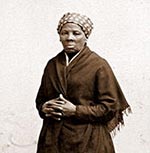
 Nelson Mandela (1918 – 2013) Nelson Mandela had the courage to fight against the unjust system of apartheid. For his political activities, he was sentenced to 20 years in prison, but he was released to lead a free South Africa.
Nelson Mandela (1918 – 2013) Nelson Mandela had the courage to fight against the unjust system of apartheid. For his political activities, he was sentenced to 20 years in prison, but he was released to lead a free South Africa.
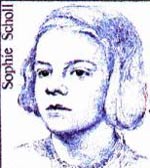 Sophie Scholl (1921-1943) German student who took part in the White Rose Resistance group who opposed Hitler and the Nazi Party. She was arrested in 1943 for distributing anti-war leaflets and was executed.
Sophie Scholl (1921-1943) German student who took part in the White Rose Resistance group who opposed Hitler and the Nazi Party. She was arrested in 1943 for distributing anti-war leaflets and was executed.
 Mikhail Gorbachev (1931 – ) Gorbachev was leader of the Soviet Union and during his tenure, he instituted fundamental change of glasnost and perestroika (economic and political freedom) – even though these democratic reforms ultimately led to losing power. In 1991, when a coup tried to remove him from power, he stepped down from office rather than risk the Soviet Union descend into civil war.
Mikhail Gorbachev (1931 – ) Gorbachev was leader of the Soviet Union and during his tenure, he instituted fundamental change of glasnost and perestroika (economic and political freedom) – even though these democratic reforms ultimately led to losing power. In 1991, when a coup tried to remove him from power, he stepped down from office rather than risk the Soviet Union descend into civil war.
Muhammad Ali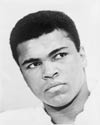 (1942 – ) American Boxer and civil rights campaigner. Ali became undisputed Heavy Weight Champion of the world. At the peak of his fame, he refused to fight in Vietnam. Because of his decision, he was banned from boxing – missing the best years of his career, though he came back.
(1942 – ) American Boxer and civil rights campaigner. Ali became undisputed Heavy Weight Champion of the world. At the peak of his fame, he refused to fight in Vietnam. Because of his decision, he was banned from boxing – missing the best years of his career, though he came back.
 Aung San Suu Kyi (1945 – ) Leader of Burmese opposition party. Kept under house arrest for several years. She has sought to fight for democratic principles in her country Burma.
Aung San Suu Kyi (1945 – ) Leader of Burmese opposition party. Kept under house arrest for several years. She has sought to fight for democratic principles in her country Burma.
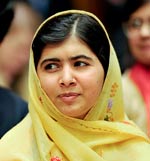 Malala Yousafzai (1997 – ) Pakistani schoolgirl who defied threats of the Taliban to campaign for the right to education. She survived being shot in the head by the Taliban and has become a global advocate for human rights. She has sought to emphasis the peaceful nature of Islam and the respect Islam has for education.
Malala Yousafzai (1997 – ) Pakistani schoolgirl who defied threats of the Taliban to campaign for the right to education. She survived being shot in the head by the Taliban and has become a global advocate for human rights. She has sought to emphasis the peaceful nature of Islam and the respect Islam has for education.
Citation: Pettinger, Tejvan. “Men and women of principle”, Oxford, UK www.biographyonline.net, 17th December 2016
Related pages
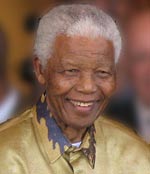
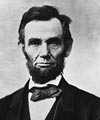
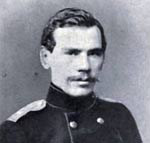
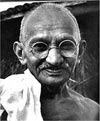

Comments are closed.
*/